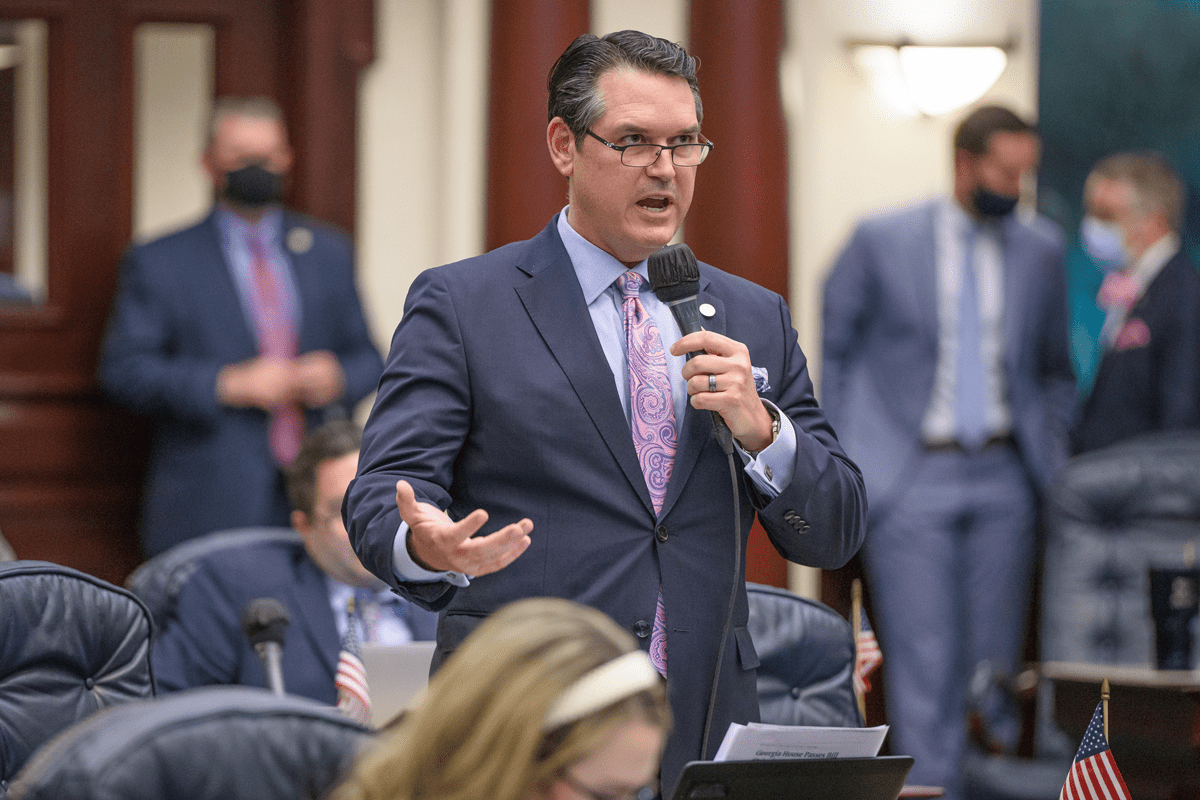DeSantis Administration Celebrates Election Security and Integrity: ‘Gold Standard for the Nation’

TALLAHASSEE (FLV) – The Florida Department of State highlighted their top 2022 accomplishments and thanked Gov. Ron DeSantis for his “unwavering support” of ensuring Florida’s election security and integrity.
“During this election year, Governor DeSantis once again ensured that Florida’s elections are the gold standard for the nation, despite the challenges caused by two major hurricanes,” Secretary of State Cord Byrd said. “Governor DeSantis’ leadership and vision have once again led the way for the Department to support critical programs statewide that affect the lives of Floridians and Florida business owners in positive ways.”
DeSantis has made elections integrity and the enforcement of election laws a top priority. The state has made significant investments to ensure it has the technology, infrastructure and resources to conduct efficient and secure elections, including the creation of the Office of Election Crimes and Security.
After DeSantis appointed Byrd in May, Byrd and staff from the DOS visited all 67 counties to confirm their offices had the resources needed to conduct secure, accurate and transparent elections.
Although the state suffered destruction from the two devastating hurricanes that hit during the election cycle, Florida Supervisors of Elections certified their vote returns in advance of the statutory deadline, and Florida certified its election while other states were still awaiting results.
Specifically for Hurricane Ian, Byrd and the Division of Elections leadership conducted continuous outreach and assessed the needs and readiness of counties in or around the hurricane’s path, including: Charlotte, Citrus, Collier, DeSoto, Dixie, Flagler, Gilchrist, Hardee, Hernando, Highlands, Hillsborough, Lafayette, Lake, Lee, Levy, Manatee, Orange, Osceola, Pasco, Pinellas, Polk, Putnam, Sarasota, Seminole, St. Johns, Taylor, and Volusia counties. Secretary Byrd also personally visited the hardest hit areas, including Charlotte, Collier, DeSoto, Lee, Hardee and Sarasota counties to meet with their Supervisors of Elections in-person.
Through DeSantis’ leadership, the DOS has also been able to “carry out its mission” of maintaining Florida’s historical resources, sharing the state’s rich cultural heritage, supporting libraries and archives research and contributing to a favorable business climate.
The Division of Arts and Culture’s Office of International Affairs convened a summit for Florida’s consular corps in Coral Gables titled “Connected in Business, United in Culture,” designed to encourage economic and cultural development opportunities and international trade. The DOS highlighted that “Florida is home” to one of the largest groups of consular missions and foreign trade offices in the U.S. The summit, held in July, brought together more that 100 representatives of foreign consulates and trade organizations for panels addressing emergency management, education, highway safety, business and trade.
The Division of Arts and Culture’s Office of International Affairs curated cultural activities for the 44th Annual Southeast U.S./Japan Association Joint Meeting held in Orlando. The meeting featured more than 70 representatives from Japan and 240 representatives from Florida, Georgia, Alabama, Mississippi, Tennessee, North Carolina and South Carolina, with more than 100 representatives from Florida alone.
DOS, Division of Corporations saw over 500,000 new business entities formed in 2022. Over the past year, more than 53,000 out-of-state businesses have qualified to conduct business in Florida, as well as more than 90,000 new for-profit Florida corporations and almost 14,000 not-for-profit corporations.
In July, National Statuary Hall at the United States Capitol uncovered a monumental marble sculpture of Dr. Mary McLeod Bethune as one of Florida’s two contributions to the collection. Dr. Bethune was an educator, civil rights activist and presidential advisor and is the first black person to be represented in the National Statuary Hall Collection.
Florida resident Nilda Comas was chosen to create the statue by the Florida Council on Arts and Culture and was the first artist of Puerto Rican descent commissioned to sculpt a statue for the National Statuary Hall Collection.
DOS, Division of Historical Resources collaborated with the Division of Arts and Culture to develop and implement the African American Cultural and Historical Grant Program. Over 150 applications were reviewed at a three-day public meeting held in February. Legislative funding of just over $60 million will allow the Department to fund 118 grant projects throughout the state that highlight the contributions, culture and history of blacks in Florida, according to the DOS.
The Division completed seven county-wide historic structures surveys for Calhoun, Franklin, Gadsden, Gulf, Liberty, Jackson and Wakulla Counties. Cultural resource professionals recorded more than 15,000 additional structures 50+ years old and evaluated them for eligibility to the National Register of Historic Places.
These surveys were funded by federal disaster assistance funds associated with Hurricane Michael and according to the DOS, will help to expedite FEMA and other agency reviews in the future and provide a better understanding of impacts to historically significant structures and districts in rural and underserved communities.
DOS, Division of Library and Information Services expanded educational and research resources by adding Territorial Legislative Council Session Records, 1822-1845. The project preserves and makes accessible to the public the permanent historic government records which offer an insight into Florida’s diverse heritage and history and supplies information for historians, genealogists, teachers and students.
The collection contains more than 3,000 records documenting the work of Florida’s territorial legislators from their first meeting in Pensacola in 1822 to their final meeting in Tallahassee in 1845, after which a new state government took control of Florida’s affairs. The records include drafts of bills and resolutions, committee reports, petitions from citizens and correspondence with officials from the executive branch.



